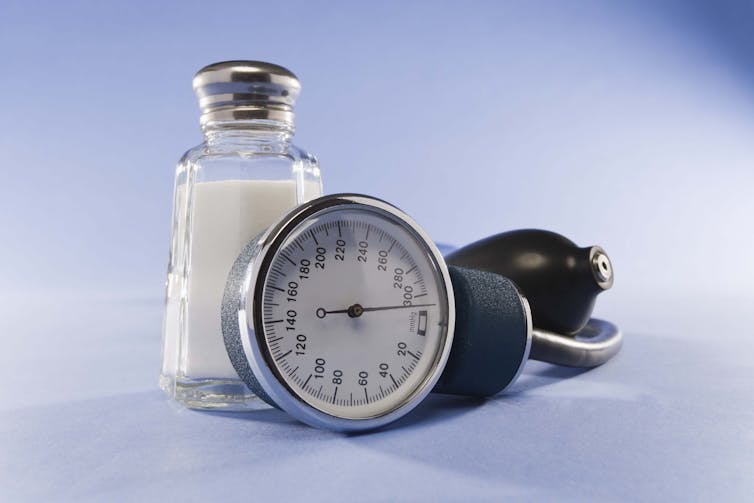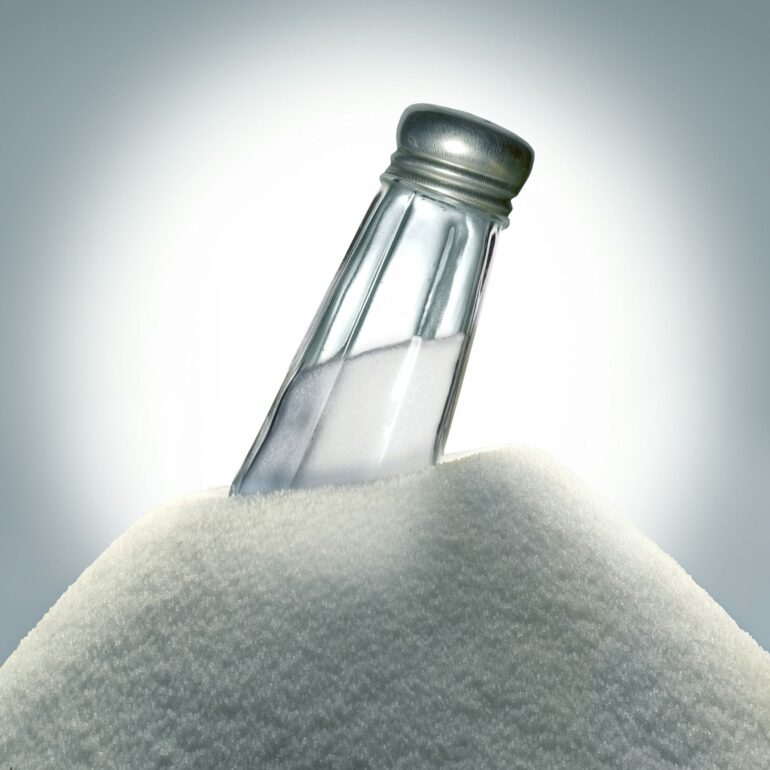People have been using salt since the dawn of civilization to process, preserve and enhance foods. In ancient Rome, salt was so central to commerce that soldiers were paid their “salarium,” or salaries, in salt, for instance.
Salt’s value was in part as a food preservative, keeping unwanted microbes at bay while allowing desired ones to grow. It was this remarkable ability to regulate bacterial growth that likely helped spark the development of fermented foods ranging from sauerkraut to salami, olives to bread, cheese to kimchi.
Today, salt has become ubiquitous and highly concentrated in increasingly processed diets. The evidence has mounted that too much salt – specifically the sodium chloride added to preserve and enhance the flavor of many highly processed foods – is making people sick. It can cause high blood pressure and contribute to heart attacks and stroke. It is also associated with an increased risk of developing stomach and colon cancer, Ménière’s disease, osteoporosis and obesity.
How might a substance previously thought worth its weight in gold have transformed into something many medical institutions consider a key predictor of disease?
Salt lobbyists may be one answer to this question. And as a gastroenterologist and research scientist at the University of Washington, I want to share the mounting evidence that microbes from the shadows of your gut might also shed some light on how salt contributes to disease.
Blood pressure cookers
Sodium’s role in blood pressure and heart disease results largely from its regulating the amount of water inside your blood vessels. In simple terms, the more sodium in your blood, the more water it pulls into your blood vessels. This leads to higher blood pressure and subsequently an increased risk for heart attack and stroke. Some people may be more or less sensitive to the effects salt has on blood pressure.
Recent research suggests an additional way salt may raise blood pressure – by altering your gut microbiome. Salt leads to a decrease in healthy microbes and the key metabolites they produce from fiber. These metabolites decrease inflammation in blood vessels and keep them relaxed, contributing to reduced blood pressure.

Extra salt may contribute to high blood pressure.
Jupiterimages/Stockbyte via Getty Images
With the exception of certain organisms that thrive in salt called halophiles, high levels of salt can poison just about any microbe, even ones your body wants to keep around. This is why people have been using salt for a long time to preserve food and keep unwanted bacteria away.
But modern diets often have too much sodium. According to the World Health Organization, healthy consumption amounts to less than 2,000 milligrams per day for the average adult. The global mean intake of 4,310 milligrams of sodium has likely increased the amount of salt in the gut over healthy levels.
Salt of the girth
Sodium is connected…



